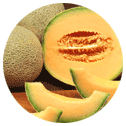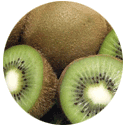Grapes Health Benefits And Nutrition Values
Grapes is a non-climacteric fruit, of the genus Vitis.Grapes can be eaten raw or they can be used for making jam, juice, jelly, vinegar, wine, grape seed extracts, raisins, molasses and grape seed oil.It consists of numerous health benefits that makes the human avoiding from diseases. Grapefruit peel oil is used in aromatherapy and it is historically known for its aroma.This Fruit has also been investigated in cancer medicine pharmacodynamics. Its inhibiting effect on the metabolism of some drugs may allow smaller doses to be used, which can help to reduce costs.

Nutrient |
Amounts/Selected Serving |
DV% |
|---|---|---|
Calcium |
15.1mg |
2% |
Iron |
0.5mg |
3% |
Magnesium |
10.6mg |
3% |
Phosphorus |
30.2mg |
3% |
Potassium |
288mg
|
8% |
Sodium |
3.0mg |
0% |
Zinc |
0.1mg |
10% |
Copper |
0.2mg |
5% |
Manganese |
0.1mg |
0% |
Selenium |
0.2mcg |
|
Fluoride |
11.8mcg |
Nutrients |
Amounts/Selected Serving |
DV% |
|---|---|---|
TotalCalories |
104(435 kJ) |
5% |
Carbs |
98.5(412 kJ) |
|
Fat |
2.0(8.4 kJ) |
|
Protein |
3.7(15.5 kJ) |
|
Alcohol |
0.0(0.0 kJ) |
Nutrients |
Amounts/Selected Serving |
DV% |
|---|---|---|
Cholesterol |
0.0mg |
0% |
Phytosterols |
6.0mg |
Nutrients |
Amounts/Selected Serving |
DV% |
|---|---|---|
Fat |
0.2g |
0% |
Saturated Fat |
0.1g |
0% |
Monounsaturated fat |
0.0g |
|
Polysaturated Fat |
0.1g |
|
| trans fatty acids |
~
|
|
transmonoenoicfattyacids |
~
|
|
trans-polyenoicfattyacids |
~
|
|
Omega-3 fatty acids |
16.6mg |
|
Omega-6 fatty acids |
55.9mg |
Nutrient |
Amounts/Selected Serving |
DV% |
|---|---|---|
Vitamin A |
99.7IU |
2% |
Vitamin B6 |
60.1mg |
6% |
Vitamin B12 |
120.0mcg |
0% |
Vitamin C |
112mg |
27% |
Vitamin D |
~ |
~ |
Vitamin D3 |
0.0mg |
|
Vitamin E |
0.3mg |
1% |
Vitamin K |
22.0mcg
|
28% |
Thiamin |
0.1mg |
7% |
Riboflavin |
0.1mg |
6% |
Niacin |
0.3mg |
1% |
Pantothenic |
0.1mg |
1% |
Choline |
8.5mg |
|
Betaine |
0.2mg
|
|
Folate |
3.0mcg |
8% |
Nutrients |
Amounts/Selected Serving |
DV% |
|---|---|---|
carbohydrates |
27.3g
|
7% |
Dietary Fiber |
1.4g |
4% |
Starch |
0.0g |
|
Sugars |
23.4g
|
Nutrients |
Amounts/Selected Serving |
DV% |
|---|---|---|
Protein |
1.1g |
2% |
Nutrients |
Amounts/Selected Serving |
DV% |
|---|---|---|
Alcohol |
0g |
|
Water |
122g |
|
Ash |
0.7g |
|
Caffeine |
0.0mg |
|
Theobromine |
0.0mg |
PERSON WHOM MAY CONSUME GRAPES
- CONSTIPATION
- CARDIOVASCULAR
- DIABETES
Grapes have laxative properties, due to the organic acid, sugar and cellulose within. If your body is refusing to let go of what’s inside, feast yourself on grapes. Grab a bunch and eat them all at once. Grapes tone the intestine and stomach which further increases their ability to relieve constipation, whether average constipation or chronic constipation.
Resveratrol, a polyphenol in the skins of red grapes, has significant cardioprotective activity, A potent antioxidant; resveratrol reduces oxidation of low-density lipoprotein, or LDL. LDL oxidation is a necessary in production of fat deposits called plaque that may harm your coronary arteries and predispose you to heart disease. Resveratrol also inhibits aggregation of platelets, lessening clot formation and further reducing buildup of plaque in your arteries. The seeds of grapes contain polyhenols called proanthocyandins that also reduce your risk of heart disease by lowering your blood levels of LDL and by protecting your heart from the damaging effects of toxins and certain drugs.
Insulin is a hormone that helps move glucose into your cells where it is needed, regulating your blood glucose level and keeping it in a healthy range. Resveratrol and other polyphenols in grapes maintain your body's sensitivity to insulin, hence prevent diabetes. In a study published in the "British Journal of Nutrition" in 2011, subjects with type 2 diabetes consumed either a resveratrol supplement or a placebo for four weeks. At the end of the study, those who took resveratrol had heightened sensitivity to insulin and other indicators that their metabolic function had improved during the term of the study.
- CANCER
- ENDOMETRIOSIS
- ALLERGIES
Cancer develops when cells become abnormal following changes in their DNA, causing the cells to grow out of control and become malignant. Resveratrol, quercetin and other polyphenols in grapes may lower your risk of cancer. Because these compounds are antioxidants, they protect your cells from DNA damage caused by environmental toxins and metabolic byproducts called free radicals. Memorial Sloan-Kettering Cancer Center lists skin cancer, leukemia, breast cancer and neuroblastoma as cancers that may be prevented by resveratrol and other polyphenols in grapes. In addition, a paper published in the "FASEB Journal" in 2010 describes laboratory studies showing that grape polyphenols stop growth of cultured prostate cancer cells and cause the cells to die.
Women who suffer from endometriosis find relief from pain and inflammation caused by chemicals known as prostaglandins. Grape seed extract blocks the release of prostaglandins, thereby reducing pain and inflammation.Grape seed oil should not be confused with grape seed extract, but the oil may offer health benefits as well. A study conducted in New York at the University Health Science Center found that adding two tablespoons of grape seed oil to the subjects' daily diet increased the good cholesterol (HDL) and reduced triglycerides.
If you suffer from allergies, grape seed will lessen the severity of the symptoms.This herbal extract works by inhibiting the release of histamine, which is a compound responsible for allergic reactions such as hay fever or hives.
PERSON WHOM MAY NOT CONSUME GRAPES
- RENAL FAILURE
It is suggested that the Renal Failure patient should not eat fruit with rich water, for the water intake of the Renal Failure patient should be controlled strictly. The fruit is rich in water, so it is not good to eat too much fruit. If the Renal Failure patient has also Uremia, the following fruit is forbidden to eat, carambola(never), guava, cantaloupe, hami melon, orange, banana, and grapefruit.They can eat vegetables like rape, onion, tomato etc. and fruits like apple, strawberry (follow the doctor’s advice), etc. The protein intake should be mainly from high quality animal protein, like milk, egg etc. But the quantity should be limited, can’t overeat.















